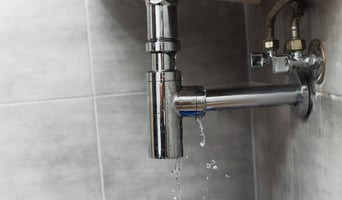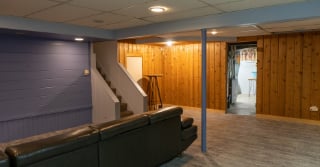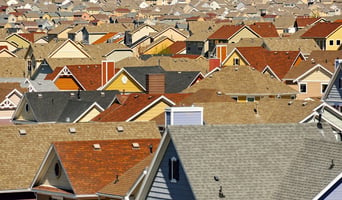Water damage is a significant concern for homeowners, with substantial financial and emotional...
Understanding Water Damage: What Homeowners Need to Know
Water damage can wreak havoc on a home, causing costly repairs and headaches for homeowners. Water damage and freezing claims account for 23.5% of all home insurance claims and the average claim payout is $12,514, according to the recent data from the Insurance Information Institute. While many might associate water damage solely with floods, there's a variety of scenarios where water damage can occur, each with different implications for insurance coverage.
Types of Water Damage Covered by Homeowners Insurance
Homeowners insurance typically covers sudden and accidental water damage originating from within the home. This includes incidents such as:
- Plumbing Issues: Sudden leaks or bursts in pipes within the walls or under the floors.
- Appliance Overflows*: Malfunctions in appliances like dishwashers or washing machines that lead to water spillage.
- Fire Extinguisher/Hose Damage: Damage caused by using fire extinguishers or hoses to combat fires.
For example, if your dishwasher unexpectedly overflows or a pipe bursts due to freezing temperatures, your homeowners insurance is likely to cover the resulting water damage.
Exclusions and Limitations
However, homeowners should be aware of certain exclusions and limitations in their policies. Gradual damage, such as that caused by long-term leaks or wear and tear, is typically not covered. For instance, if a leaky bathroom sink goes unnoticed for months, resulting in water damage, your insurance may deny the claim citing gradual damage.
Additionally, if you have a sump pump and the pump breaks down, your basement might flood. This type of water damage is excluded from Homeowners Insurance and requires a Sewer, Drain, & Sump Pump endorsement.
Furthermore, while homeowners’’ insurance may cover water damage from rain under certain circumstances, such as damage caused by extreme weather conditions like ice dams or fallen trees, it does not cover flooding. If rainwater enters your home due to pre-existing structural issues or flooding, you may find yourself without coverage for the resulting damage.
Understanding Denials and Claim Rejections
There are several reasons why a water damage claim might be denied by your insurance provider:
- Gradual Damage: If the cause of the damage is deemed to be gradual rather than sudden and accidental, the claim may be rejected.
- Exclusions: If the specific circumstances of the damage fall under policy exclusions, such as flooding or wear and tear, the claim is likely to be denied.
- Failure to Maintain: If the damage resulted from a lack of proper maintenance or neglect on the part of the homeowner, the claim may be rejected.
Importance of Maintenance and Awareness
To mitigate the risk of water damage claims being denied, homeowners should prioritize regular maintenance and promptly address any issues that arise. This includes routine inspections of plumbing systems, appliances, and the home's exterior to identify potential sources of water damage.
Water damage can occur in various forms and can lead to significant financial losses if not properly addressed. Understanding what types of water damage are covered by homeowners’ insurance, as well as the reasons why claims might be denied, is essential for homeowners to adequately protect their investment. By staying informed, maintaining their property, and reviewing their insurance policies regularly, homeowners can better navigate the complexities of water damage claims and safeguard their homes against unforeseen disasters.
*It is important to note that your insurance will not cover the cost of repairing or replacing the malfunctioning appliance. If you are interested in this service, you should seek out a home warranty program.
https://www.iii.org/fact-statistic/facts-statistics-homeowners-and-renters-insurance





